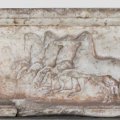Dr Judith Greer has won two prestigious awards for expanding knowledge of why the human immune system sometimes runs amok.
Dr Greer, a senior research officer in UQ's Medicine Department at Royal Brisbane Hospital, has received a UQ Foundation Research Excellence Award valued at $70,000.
She has also been awarded funding by the Australian Academy of Science to learn new techniques with colleagues at the Universite Louis Pasteur, Strasbourg, France, and leaves on August 16 to undertake that research.
Dr Greer is an immunologist, interested in the processes which occur in auto-immune diseases, when the body literally turns on itself.
Her particular interest is in multiple sclerosis (MS), a common inflammatory disease of the central nervous system (CNS) affecting two million people worldwide, and about 10,000 to 20,000 people in Australia.
In MS, a person's own immune system starts to attack parts of the brain and spinal cord, causing lesions that prevent nerve impulses from passing from the brain to other parts of the body.
The symptoms that people with MS develop can vary from one person to another, depending on where in the brain or spinal cord the lesions occur.
Last year the National Multiple Sclerosis Society of the US awarded about A$880,000 to a study to examine the causes of multiple sclerosis, led by Dr Greer and Professor Michael Pender also of UQ's Medicine Department at Royal Brisbane Hospital. It is one of only 200 grants made internationally by the Society each year.
Dr Greer said the ultimate aim of her work was to learn more about the underlying mechanisms responsible for MS in order to assist researchers to tailor more specific treatments for the non-curable auto-immune disease.
Current treatments for multiple sclerosis are aimed at non-specifically suppressing the immune system, and can have unwanted side effects.
Among other avenues of research, Dr Greer is examining a type of therapy involving the use of agents known as Altered Peptide Ligands (APLs).
This approach to therapy was discarded last year in the United States when it produced adverse reactions in some people with MS. Dr Greer believes testing procedures may not have excluded all the possible modes of action of APLs, and will investigate these further using funding from the UQ Foundation Research Excellence Award.
She believes the people with most expertise about MS - the patients - have a lot to teach researchers.
'We're very grateful to patients with MS for the generosity they have shown in helping us to advance knowledge of multiple sclerosis,' she said.
'I'm part of a team of about a dozen researchers studying MS, and none of our research would be possible without the patients.
More than 200 people attending the MS Clinic at Royal Brisbane Hospital have participated in our studies. One study required patients to attend once a month for over a year to undergo MRI scans and give blood - which they cheerfully did.'
Dr Greer is particularly interested in a protein in the central nervous system called PLP, and the role it might play in multiple sclerosis.
US researcher Dr Marjorie Lees discovered PLP in the 1950s, and Dr Greer was fortunate to undertake her postdoctoral fellowship with her at Harvard Medical School from 1991 to 1994. She has been interested in PLP and its potential role as a target of auto-immune attack ever since.
Dr Greer is a University of Queensland graduate, completing a Bachelor of Science honours degree in 1984, and her PhD part-time in the then Department of Microbiology supervised by Professor Bill Halliday, in 1991.
Her PhD studies were in the regulation of immune responses, but with a different disease, cancer.
'The overall aim of both my cancer and MS work has been similar - trying to find ways to manipulate the immune system so as to change the course of a disease and let the body heal itself.'
Media: For more details about the research of the nine winners contact Peter McCutcheon (07 3365 1088 or 0413 380012) or Jan King (07 3365 1120 or 0413 601 248)
.jpg)



